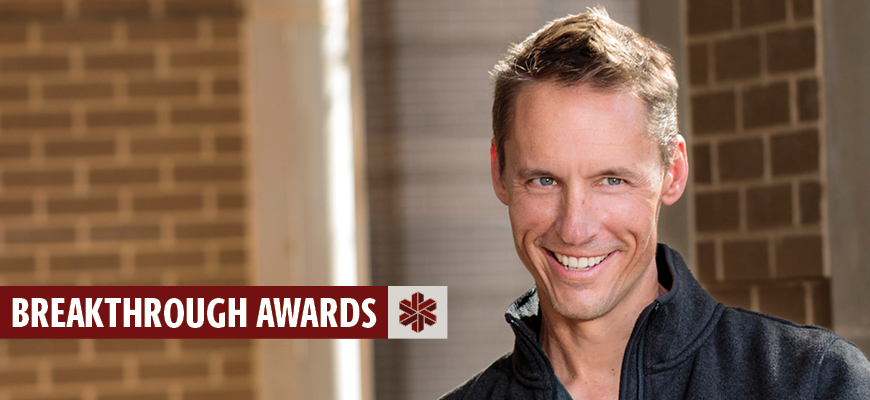
Breakthrough Leader: Michael Beets
Public health scientist sets high bar in research, mentoring productivity
Posted on: May 2, 2022; Updated on: May 2, 2022
By Chris Horn , chorn@mailbox.sc.edu, 803-777-3687
In 14 years at the University of South Carolina Michael Beets has notched an enviable record of research productivity — more than 200 publications, a Google Scholar h-index of 50 with nearly 12,000 citations while serving as principal investigator on seven large NIH grants and associate director of an NIH-sponsored Center of Biomedical Research Excellence.
The record of Beets’ performance as an academic mentor is equally impressive. He started an NIH Grant Writing Boot Camp for research faculty in the Arnold School of Public Health, a venture so successful it was emulated by the new university-wide Propel program, for which Beets serves as director.
“He is an enthusiastic cheerleader for mentees, research staff and faculty colleagues — readily celebrating the successes of others in research efforts and difficult accomplishments,” says Ron Prinz, a psychology professor with whom Beets partnered to launch the NIH-sponsored Research Center for Child Well-Being.
Perhaps the greatest joy I receive out of this is when I see faculty ... grow in their confidence to compete for funding and successfully obtain it.
Michael Beets
“Michael and I are co-mentoring several early-career faculty in relation to our center — which necessitates a strong dose of encouragement and nurturing while gently pushing for rigor and high impact. Michael frequently achieves or exceeds this goal in both our joint mentoring of center investigators and in his own research group.”
Beets’ research focuses on prevention and treatment of childhood obesity, and several of his grants have funded community-based interventions that have enhanced the health of thousands of children across the Palmetto State. His research group includes four faculty members and 13 staff and graduate students.
“My role as director of the group is to assist faculty in growing their research portfolio on topics related to childhood obesity,” Beets says, a commitment to research excellence that extends to other faculty members at the university. “I chose to initiate and lead these [grant writing workshops] because of the desire to assist faculty, at all stages of their careers, in being successful in the pursuit of funding for their respective research area of interest.
“Perhaps the greatest joy I receive out of this is when I see faculty, who either have limited experience pursuing competitive external funding or have had limited success, grow in their confidence to compete for funding and successfully obtain it. I am proud of what I have accomplished, but feel I am doing what I would expect anyone at my rank to do — be a good citizen, conduct high quality research and support those around you in being successful. I believe we all have the ability to do this.”